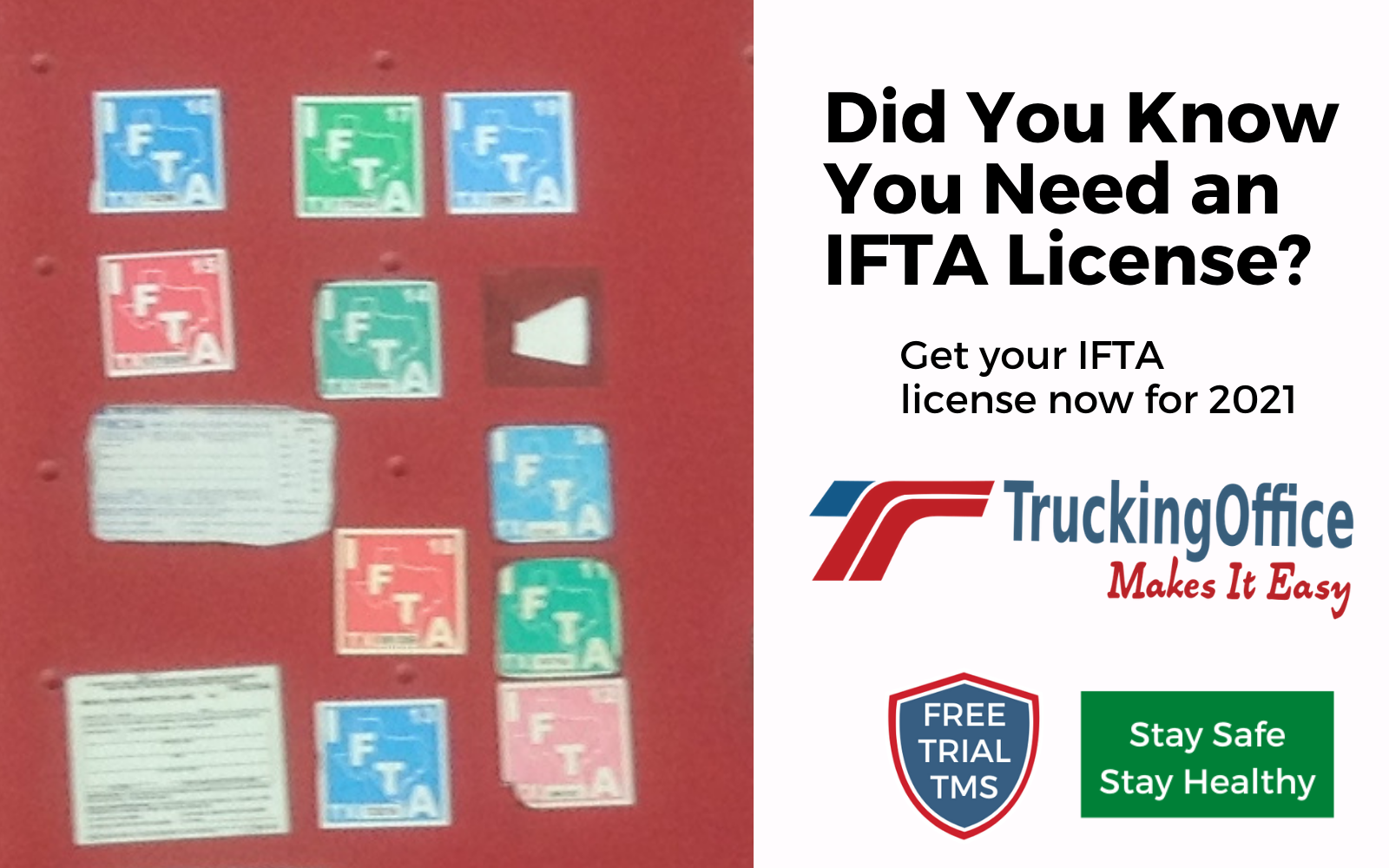IFTA was created to simplify fuel tax reporting as well as distribution of those taxes to each jurisdiction. Of course, you’ve probably heard other truckers complain about the many complicated IFTA regulations and hope to avoid them. Unfortunately, there are only a few exceptions that would exempt you from needing an IFTA permit.
So, now that you’re ready to enter the world of trucking, you need to know more about IFTA to determine whether you are required to have an IFTA license.
Who Must File for an IFTA License?
Will you be operating a qualified commercial motor vehicle in US or Canadian IFTA member jurisdictions? If so, you’ll need to apply for a license that allows you to transport goods among these states or provinces.
Your vehicle qualifies for IFTA permits. If the guidelines are met:
- The vehicle has three or more axles, or
- Vehicle has two axles and a GVW or registered GVW of 26,000 pounds or more (11,797 kilograms), or
- The vehicle s used in a combination with GVW of 26,000 pounds or more (11,797 kilograms).
Exemptions apply to recreational vehicles such as campers or motor homes. Also, some states allow IFTA tax exemptions for private roads, some toll roads, or Indian reservations. You may qualify for exemptions based on type of fuel, specific vehicle types, or temporary trip permits.
What Happens if I Don’t Get a New IFTA License?
The consequences of not getting a new IFTA license can go from a minor citation to having your load and rig impounded. So, you must file the IFTA reports and pay the fuel taxes by the due date each quarter. If you fail to file or have unpaid or underpaid fuel taxes, you can’t renew your license.
The fines vary by jurisdiction and can range between a few hundred dollars to thousands. In a worst-case scenario, your vehicle can be placed out of service until you get a new license. You may be allowed to purchase a temporary trip permit for each state on your route, but they are only valid for 30 days.
Few truckers relish the idea of telling their customer that their shipment is in custody for about 28 days. Most likely, the customer will find another carrier for their future shipping needs. The best way to avoid this potential business disaster is to make sure you’re always IFTA compliant with current decals and licenses.
Our TruckingOffice TMS will calculate fuel taxes by state and generate accurate IFTA tax reports every quarter. Late payments that can make renewing your IFTA license difficult will no longer be a problem.
How to Apply for an IFTA Permit
To begin your application process, you can find an application on your base state’s website or you can contact the local office in your state. Some of the information you’ll need to provide includes your USDOT number, business name, physical mailing address, and federal business number.
Once your application is processed you’ll receive the official IFTA decals. You can receive a temporary license by fax while waiting for your decals to arrive. Remember to display one decal on each side of your truck cab(s). Keep a paper copy with you in your cab – just in case the sticker comes off.
An IFTA license and the decals are valid for one year and will expire on December 31st of every year.
Renew Your IFTA license in November
While there is generally a grace period for getting your IFTA stickers on your rig, you should probably apply in November or early December for the following year’s sticker. Most states make the process simple and several jurisdictions don’t charge for them – so you’re not spending money to get them. With all the other truckers requesting their new stickers at the same time, there may be a delay if you wait until the end of December.
Remember, you have to keep those stickers – don’t throw away last year’s IFTA stickers.
Other Requirements
Under IFTA regulations, truckers must file quarterly IFTA fuel tax returns with their base state. Fuel purchases must be recorded with applicable receipts. Or invoices readily available. Before your license and decals can be renewed, all IFTA quarterly taxes must be paid in full .
After filing the quarterly returns, your base state will distribute the taxes to each jurisdiction on your route. Although it seems complex, the reporting process makes payment and collection less complicated for everyone involved. As you become more familiar with the rules and regulations, the process will seem much less intimidating.
How TruckingOffice Can Help
At its best, the life of a trucker is hectic, demanding, and, at times, overwhelming. Too many things to remember, too many deadlines, and so many reports. You’re probably wondering how you’ll ever find time to drive and make money. If you’re looking for an easier way to stay on top of everything related to your operation, we have the solution.
With our TruckingOffice TMS package, your
- fuel use
- mileage
- invoices
- dispatches
- truck maintenance
- driver pay
- IFTA reporting
will be organized and secure all in one place. You’ll always know where your business stands and where or how you can make necessary changes in your operation to cut costs and improve revenue.
Learn more about our TMS by signing up for your free trial today.







We have two semis, one that pulls a 5 axle lowbow. we do not travel over 20 miles in the state of Illinois. do we still need IFTA stickers?